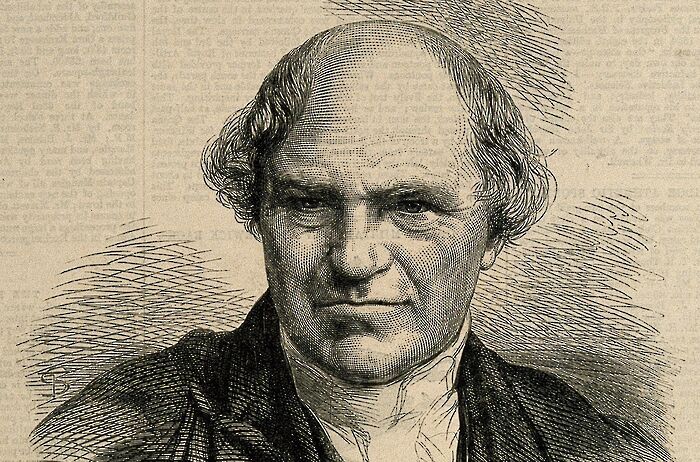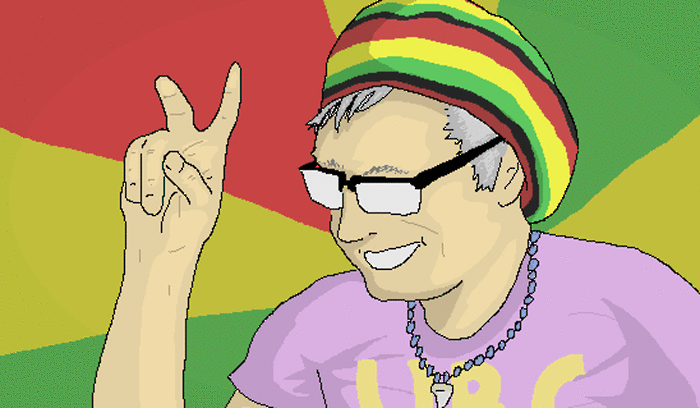Formalities and forward thinking as Toope takes up his mantle
The new vice-chancellor set out his vision for Cambridge, but first there were a few ceremonies to get through

SENATE HOUSE – It was never going to be simple. After a flurry of Latin, a series of hat-doffings and a short procession, Stephen Toope was installed on Monday as the 346th vice-chancellor (VC) of the University of Cambridge.
Around 200 people, most of them academics and staff, arrived at Senate House to witness the traditional congregation ceremony in which Toope took the reins from the outgoing VC, Sir Leszek Borysiewicz.
Addressing the assembled spectators – and, inevitably, the wider world – he used his inaugural speech to pledge a vision of a global University, emphasising Cambridge’s world-leading role in research and scientific discovery.
Toope was previously director of the University of Toronto’s Munk School of Public Affairs, and between 2006 and 2014 he served as president and vice-chancellor of the University of British Columbia. A graduate of McGill, Harvard and Trinity College, Cambridge, this is the first leadership role he has held in Britain.
Before he could take up his new mantle, however, there were some formalities to take care of.
Shortly after 9am, the University proctors entered the south door of Senate House, which faces the lawn, accompanied by Borysiewicz and Toope. All were dressed in black robes, with mortarboard hats.
Taking the podium in front of four wooden pillars at the building’s west end, Borysiewicz began his valedictory speech.
“Today I step down with a mixture of satisfaction at things achieved, and sadness at leaving behind what has been – without question – the most fulfilling job I have ever done,” he said.
“To have served as vice-chancellor has not only been a tremendous privilege, but also a source of great pride and, most of the time, a great pleasure.”
He praised his colleagues, his wife, Dr Gwen Borysiewicz, and his “excellent” successor, telling the assembly: “Under his leadership, and with your full support, I am confident that this University will continue to achieve the excellence in the service of society that I spoke of seven years ago.
“Professionally, these have truly been the best years of my life – I am sure they will be Stephen’s, too,” Borysiewicz said. “I wish him and you all every possible success for the future of this wonderful University of ours.”
“And so, to all of you, farewell – and thank you,” he concluded, to sustained applause.
As Borysiewicz left the podium and took a seat among the audience, the deputy proctors, who presided over the ceremony, guided Toope to the front of the room, and began his official installation.
Holding Toope’s hand, the former senior proctor, Gordon Chesterman, asked: “Dabis fidem te bene et fideliter praestiturum omnia quae spectent ad officium procancellarii academiae Cantabrigiensis [Will you pledge to diligently and faithfully oversee all matters which have to do with the office of vice-chancellor of Cambridge]?”
“Ita do fidem [I pledge accordingly],” Toope responded.
Chesterman then admitted Toope formally, saying: “Auctoritate nobis commissa admittimus te ad officium procancellarii hujus academiae, in nomine Patris, et Filii, et Spiritus Sancti [By the authority entrusted to us, we admit you to the office of vice-chancellor of this university, in the name of the Father, the Son, and the Holy Spirit].”
After that agreement, Toope was invited by the registry, Emma Rampton, to sign the book of admissions to office, and was presented the vice-chancellor’s insignia by former deputy proctor Dr Cristiano Ristuccia. As this process went on, Toope repeatedly underwent a process of hat-doffing, turning variously to the assembled proctors and pro-vice-chancellors – they would raise their caps at Toope, who then responded in kind. He was then escorted to the chancellor’s throne, as which point the congregation reached its official close.
Toope was then invited forward by the proctors once again, to give his first ever speech as vice-chancellor. Before the speech began in earnest, he offered his thanks to University members or prominent local people who had retired or passed away within the past year.
He began his speech by extolling Cambridge’s starred and storied history, saying: “For hundreds of years, Cambridge has nurtured generation after generation of leaders in areas ranging from philosophy and classics to economics and geography; from medicine and biology to mathematics and engineering; from theatre and comedy to politics and business – indeed in every field of human endeavour.”
“Many of you will be aware of the saying about the difference between North America and Britain,” he said. “‘In Britain,” it goes, “people think that 100 miles is a long distance; in North America, people think that 100 years is a long time.” Indeed, when I became president and vice-chancellor of the University of British Columbia in 2006, I was only the 12th person to take on the role. So the task of becoming this University’s 346th vice-chancellor is one that fills me with wonder – and one that I undertake with humility.”
He went on to emphasise a perceived growth in global ‘complexity’. Citing novelist Toni Morrison, he said his “appointment coincided with the beginning of a period of profound unease”, ushering in a “new age of anxiety, marked by a widespread distrust in institutions, in experts, and in business-as-usual politics.”
He offered his belief that community spirit could overcome such challenges, however, citing King’s and Varsity alumna Zadie Smith’s suggestion that “we must reach our hands outward.”
He praised the collegiate system and unity of the University, saying that the collective goal of members should be “to ensure that, in an increasingly complex and anxious world, the University of Cambridge remains an unstoppable, unapologetic force for knowledge and understanding, for more inclusive community, and for the betterment of our shared world.”
At the speech’s close, Toope undertook a second formal process, of installing new proctors. After that was complete, Toope and the proctors formed a procession and exited the building at its east end. They slowly marched down the path alongside Senate House lawn and entered the old University Library, now Gonville & Caius library. Madeira and coffee were then served at a reception in the Old Schools building.
Additional reporting by Helena Tunks and Lucy Emanuel
 News / Uni Scout and Guide Club affirms trans inclusion 12 December 2025
News / Uni Scout and Guide Club affirms trans inclusion 12 December 2025 News / Cambridge Vet School gets lifeline year to stay accredited28 November 2025
News / Cambridge Vet School gets lifeline year to stay accredited28 November 2025 Science / Did your ex trip on King’s Parade? The science behind the ‘ick’12 December 2025
Science / Did your ex trip on King’s Parade? The science behind the ‘ick’12 December 2025 News / Cambridge study finds students learn better with notes than AI13 December 2025
News / Cambridge study finds students learn better with notes than AI13 December 2025 News / Pembroke to convert listed office building into accom9 December 2025
News / Pembroke to convert listed office building into accom9 December 2025










